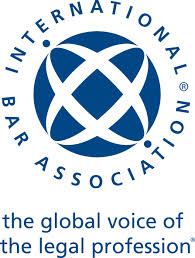 The IBA Litigation Committe has produced a survey looking at the impact of COVID-19 on court operations and litigation practice across 37 different jurisdictions – from Argenina to the United States. Jeff Galway and Urs Hoffmann-Nowotny served as general editors and I had the honour of contributing the chapter on Germany. The plan is to update the survey as matters develop in the various jurisdictions. Here’s the link to the IBA Litigation Committe homepage and here is a link to the report in its current form. Read More
The IBA Litigation Committe has produced a survey looking at the impact of COVID-19 on court operations and litigation practice across 37 different jurisdictions – from Argenina to the United States. Jeff Galway and Urs Hoffmann-Nowotny served as general editors and I had the honour of contributing the chapter on Germany. The plan is to update the survey as matters develop in the various jurisdictions. Here’s the link to the IBA Litigation Committe homepage and here is a link to the report in its current form. Read More
Tag: United States
US Ratification of Hague Choice of Court Convention: Bad News from Across the Pond
 We have regularly covered the Hague Convention of Choice of Court Agreements on this blog. From a German, and indeed from a European perspective, a major breakthrough in terms of practical relevance of the Convention would be the ratification of the convention by the United States, given that there currently is no treaty in place between Germany and its biggest non-European trading partner that deals with recognition of judgments. Ted Folkman on his blog lettersblogatory.com is probably the best source for coverage of the Convention’s road towards ratification in the United States. This is what Ted has to Report: Read More
We have regularly covered the Hague Convention of Choice of Court Agreements on this blog. From a German, and indeed from a European perspective, a major breakthrough in terms of practical relevance of the Convention would be the ratification of the convention by the United States, given that there currently is no treaty in place between Germany and its biggest non-European trading partner that deals with recognition of judgments. Ted Folkman on his blog lettersblogatory.com is probably the best source for coverage of the Convention’s road towards ratification in the United States. This is what Ted has to Report: Read More
Changes to U.S. Discovery Rules: The New FRCP 26(b)(1)
Ted Folkman of Letters Blogatory has a “major conceptual change” to the rules on discovery in the United States to report:
European readers, who love to hate U.S. pretrial discovery—this one is for you. Absent action by Congress, on December 1, 2015, an amendment to Federal Rules of Civil Procedure (FRCP) 26 adopted by the Supreme Court will go into effect. The main change concerns the scope of permissible pretrial discovery. Read More
Hague Convention on Choice of Court Agreements Comes Into Force
 On October 1, 2015, the Hague Convention of 30 June 2005 on Choice of Court Agreements came into force in 28 States, namely in Mexico and all member states of the European Union – with the traditional exception of Denmark, which continues its isolationist policy in jurisdictional matters. The Convention thus comes into force a little over 10 years after it was signed in 2005, as the result of the European Union’s approval earlier this year. It remains to be seen whether its entry into force creates some momentum amongst other states to follow. From a European perspective, the United States’ ratification would have the biggest practical impact. Read More
On October 1, 2015, the Hague Convention of 30 June 2005 on Choice of Court Agreements came into force in 28 States, namely in Mexico and all member states of the European Union – with the traditional exception of Denmark, which continues its isolationist policy in jurisdictional matters. The Convention thus comes into force a little over 10 years after it was signed in 2005, as the result of the European Union’s approval earlier this year. It remains to be seen whether its entry into force creates some momentum amongst other states to follow. From a European perspective, the United States’ ratification would have the biggest practical impact. Read More
